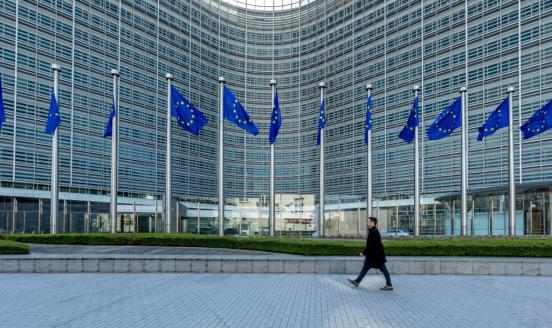To unblock fiscal rule reform, the EU should reinstate its excessive deficit procedure
Reapplying the excessive deficit procedure could create space for European Union countries to decide on longer-term rule change

Reform of the European Union’s fiscal rules, which set broad limits on how much debt EU countries can amass, appears stuck. Germany, which wants to have confidence that high debts will be tackled, is at odds with France and Italy, which prefer more leeway, especially to enable public investment. However, on one element of the rules there is consensus: the excessive deficit procedure (EDP).
An EDP can be triggered if a country’s deficit goes above a 3% of GDP threshold, or if government debt rises above 60% of GDP. Countries subject to an EDP must fix the problem through a programme of fiscal adjustment. But the EDP rule has been suspended since 2020 because of the need for government spending in the wake of the COVID-19 pandemic.
Although not directly related to the fiscal rules reform, reinstating the EDP could help break the current deadlock. The European Commission has said it will open EDPs in spring 2024 for all EU countries in breach of the 3% deficit limit. But this is not certain; the suspension of the rules has been extended before, and EU countries concerned by the move (including France, Italy and Spain) may resist.
Reapplying the EDP in 2024 under the current rules would remove those doubts and hence a source of mistrust between the Commission and countries including Germany. It would also strike a balance between Germany’s concern that fiscal adjustment in France and Italy should no longer be postponed, and the Italian and French concern that fiscal adjustment under the proposed new rules would initially be too harsh. Fiscal adjustment requirements under the EDP are a known quantity: they typically would not exceed 0.5% of GDP per year. This is significant, but manageable.
The search for a compromise on the proposed new system could then be guided by what is desirable over the medium and long terms, rather than what the rules would require initially from high-debt countries – which would only be subject to the new rules once they exit their EDPs.
The main element of the reform, proposed by the European Commission in April 2023, is that instead of EU countries seeking to raise their cyclically adjusted fiscal balances to a “medium-term objective” – meaning close to balance or in surplus, determined by a formula – they would submit fiscal adjustment paths that would put their debts on a firmly downward trajectory or at prudent levels by the end of a four to seven year adjustment period. This would be done in line with criteria derived from the Commission’s debt sustainability analysis (DSA) methodology. The sticking point in the reform is that Germany and a group of lower-debt countries believe individual debt adjustment strategies would allow too much discretion and lack transparency.
These countries want to reintroduce numerical rules (‘safeguards’) that require a minimum adjustment regardless of the results of the DSA. The safeguards envisage a minimum annual adjustment of 0.5% for countries with deficits in excess of 3%, and a requirement for the debt ratio to fall within the first four years. However, the former overlaps with the EDP, creating unnecessary confusion, and the latter would be mostly not binding, and would produce irrational results in few cases, as is bound to happen when debt-reduction requirements focus on a short period.
If an additional numerical rule is needed to reach an agreement, it could take the form of an average annual 1% reduction in the debt ratio, calculated over the adjustment period and the subsequent ten years. Other elements of compromise could include independent scrutiny of the DSA methodology by an upgraded European Fiscal Board.
If the reactivation of the EDP allows for an overall political agreement on the reform, then lack of formal adoption before next year’s European elections would not compromise the overall effort, which began with the review of economic governance in 2020. With the EDP activated in 2024, finalising the reform could proceed in parallel with the monitoring and enforcement of the EDP in the next legislative period.



